 Cascia, the city of St. Rita, whose feast day is today, is a beautiful mountainous place in the region of Umbria in Italy. Its natural beauty obscures a violent past, which St. Rita experienced in her own life through the violent deaths of her husband and sons. Violence continues in our world in many different ways. One way is the violence that is done through lack of care of our common home, all of creation, including human beings. Pope Francis tells us in Laudato Si’: “Sin is manifest in all its destructive power in wars, the various forms of violence and abuse, the abandonment of the most vulnerable, and attacks on nature” (66). St. Rita forgave those who killed her husband and sons. She worked for reconciliation. Today, in Cascia and shrines in honor of her throughout the world, the work of reconciliation is a hallmark. We need to ask ourselves how we are reconciling the sins that Pope Francis identifies. The Pope reminds us that “everything is related, and we human beings are united as brothers and sisters on a wonderful pilgrimage, woven together by the love God has for each of his creatures and which also unites us in fond affection with brother sun, sister moon, brother river and mother earth” (Laudato Si’, 92). May the charity of Christ urge us on! In God, the Infinite Love, Fr. Frank
0 Comments
Lately, it has been a personal goal of mine to be outside more often. With spring upon us in the Washington, D.C. area, there have been many new and bright, shiny opportunities to enjoy the weather. My four-year-old is often my outdoor buddy, and we have enjoyed finding new parks, revisiting old ones, and looking for exciting ways to explore. We have had so many laughs and special moments while enjoying our little piece of the world that I sometimes get emotional thinking about how blessed I am and how wondrous the world is. It is humbling to consider how massive and stunning, yet how perfectly planned our Earth was made to be. In celebration of Earth Day on April 22nd, I have decided to focus on the beauty of nature through the adoring eyes of my son and reflect on how to instill more wonder and awe into my everyday “grown-up” life.
Who among us is yearning for connection? Just about everyone! As humans, we are built and intended to need other people, it is how God intended for us to be: communal people. The solar eclipse on April 8th brought so many of us in North America together, outside, to view a celestial event take place that has not happened in totality in a long time. The awe that took place, from people of all walks of life, backgrounds, beliefs, and cultures to view something so wondrous is humbling. The feeling of being part of something so much bigger than oneself is truly a holy experience for some; for others it was a chance to participate with those around them - a true shared experience. In Pope Francis’ 2015 encyclical letter, Laudato Si: Care for Our Common Home, he cautions us about the dangers of not caring for the Earth, reminds us that we are all interconnected, and provides steps to take in order to be a productive and intentional steward of the Earth we share. There are so many practical ways to care for the world around us, that even young children are often taught about recycling, waste, planting new growth, sustainable choices, and conservation of resources - all in an effort to better our common home. Whether it is my class of preschoolers or my own son, every day serves as a chance to teach and encourage our upcoming generations to do their part as members of our planet. As I close here, a prayer from Salt and Light titled, A Prayer for Our Environment from Pope Francis' Laudato Si', seems like a perfect synopsis of my reflection here on the wonder and awe of our Earth we share: All-powerful God, you are present in the whole universe and in the smallest of your creatures. You embrace with your tenderness all that exists. Pour out upon us the power of your love, that we may protect life and beauty. Fill us with peace, that we may live as brothers and sisters, harming no one. O God of the poor, help us to rescue the abandoned and forgotten of this earth, so precious in your eyes. Bring healing to our lives, that we may protect the world and not prey on it, that we may sow beauty, not pollution and destruction. Touch the hearts of those who look only for gain at the expense of the poor and the earth. Teach us to discover the worth of each thing, to be filled with awe and contemplation, to recognize that we are profoundly united with every creature as we journey towards your infinite light. We thank you for being with us each day. Encourage us, we pray, in our struggle for justice, love and peace. Amen. 9/1/2022 Reading the Book of Creation: Reflections on the World Day of Prayer for the Care of CreationRead NowOn the Feast of the Transfiguration, August 6, 2015, Pope Francis established the “World Day of Prayer for the Care of Creation” to be celebrated annually on September 1. In doing so, the Holy Father shared his concern for creation with Ecumenical Patriarch Bartholomew, who initiated a similar day of prayer in the Orthodox Church in 1989. For Pope Francis, the World Day of Prayer for Creation reminds Catholics of our “vocation to be protectors of God’s handiwork,” a calling and responsibility which is “essential to a life of virtue; it is not an optional or a secondary aspect of our Christian experience” (Laudato Si’ 217). As we celebrate this second annual World Day of Prayer for Creation, it is fitting to reflect on our vocation as Catholics to care for creation. Though we have a long-standing tradition of caring for creation that goes back to the early Church Fathers and has been promoted more recently by Pope Emeritus Benedict and Pope St. John Paul II, Pope Francis has brought this aspect of our faith into the limelight. I believe there are two main reasons for this: conversion and evangelization. The ecological crisis, the Pope tells us, is a summons to profound spiritual conversion that leads to developing a deeper relationship with the world around us and recognizing that “the life of the spirit is not dissociated from the body or from nature or from worldly realities, but lived in and with them in communion with all that surround us” (LS, 216). We are called to live in the world, not apart from it. We get to the spiritual through the physical. Pope St. John Paul II also taught us this in his Theology of the Body. This conversion also involves recognizing our sins against creation. In Laudato Si’, Pope Francis reminds us that “human life is grounded in three fundamental and closely intertwined relationships: with God, with our neighbor and with the earth itself” (LS, 66). Our faith exhorts us to live well, not only with God and with our neighbor, but also with the earth. One practice for this World Day of Prayer for Creation could be to examine our consciences and consider how we have treated the created matter with which we have been entrusted. Have we been selfish and unconcerned for the needs of others, consumeristic, gluttonous, unaware of the gift that creation is to us? Perhaps we have wasted food, water, or energy unnecessarily. Perhaps we watched hours of Netflix when we could have been outside walking with a friend, serving the poor, or contemplating nature. Do we feel compelled to have the latest iPhone or the largest car? Our Holy Father points out that we need to “replace consumption with sacrifice, greed with generosity, wastefulness with a spirit of sharing,” and he quotes Patriarch Bartholomew in exhorting us to cultivate “an asceticism which ‘entails learning to give, and not simply to give up. It is a way of loving, of moving gradually away from what I want to what God’s world needs.’” (LS, 9). In our process of conversion we can follow the example of Pope Francis’ namesake, St. Francis of Assisi, in doing the inner work needed to embrace creation as “Brother” and “Sister.” I believe that Pope Francis, like the two popes preceding him, also sees our Catholic concern for ecology as a path into the New Evangelization. The beauty of creation speaks to the heart and can awaken human persons to a deep interior longing for the divine source, for the Creator God. Great spiritual writers like St. Bonaventure called the created world the “book of creation,” because the created world is constantly speaking to us of God. As humans we learn to understand the language of creation by spending time outside, by developing a heart for creatures, by learning to see the vestiges of God’s love in the beauty, diversity, and extravagance of the natural world. In doing so, we come closer to God and to understanding his plan for us and for the world. It’s a two-way street: We need to learn the language of creation in order to better care for the created world. At the same time, in that conversation, we are drawn into a deeper relationship with God, the Creator. As we experience this ourselves, we are driven to share the experience with others in a new kind of evangelization. In our fast-paced world, being attentive to creation reminds us that “we are not God” (LS, 67), for if we pause and look at the beauty surrounding us, we experience a beauty that transcends anything we humans can create. At the same time, we become aware of our unique creation as humans and the moral structure inscribed into our very nature (LS, 155). Being outdoors is also a healing tonic to assuage the effects of technology and the pressures of the virtual world in which we spend so much of our time. It is an antidote for the “technologization” of society and keeps us in touch with true reality. Let us then, as we celebrate this World Day of Prayer for Creation, embrace with joy the opportunities for conversion and evangelization that lie ahead! Click here for more resources on ecology, the World Day of Prayer for Creation, and Laudato Si. **This post was originally published on 9/1/2016**
On John Prine’s 1971 debut album, there is a powerful song called ‘Paradise’. The narrator of the song describes an idyllic town in Eastern Kentucky called Paradise. A coal company comes in with “the world’s largest shovel” and begins to dig for coal. It torches the land while calling it the “progress of man.” The son of the narrator asks his father if he will take him to visit Paradise. The father delivers the sad news to his son that they are too late, “Mister Peabody’s coal trains have hauled it away.” As a kid from Scranton, the capital of Pennsylvania’s coal country, I grew up seeing firsthand the damage this kind of “progress of man” can do after decades of coal mining. The landscape and its people have been forever scarred by the unchecked desire for profit. One can see the physical damage, such as piles of coal ash and mine waste, or the collapse of mine shafts that affect buildings and roads. There is not just physical damage, but there are also significant health issues that still threaten residents of coal country. This is just one small example of how environmental issues can impact so much. These issues of care for the environment and care of people are at the very heart of what we should be celebrating Earth Day, which occurred last week on April 22nd. It is a celebration of not just all the great and wonderful gifts our planet has given to us, but of its people too. As we emerge from the Covid-19 pandemic and begin to remove our masks from our mouth and nose, we have the opportunity to remove the mask from our eyes and hearts to the plight of the planet and its inhabitants. Pope Francis offers a fresh view of how we can interact with our natural world in his encyclical Laudato Si'. Drawing inspiration from his namesake and building off the foundations of his papal predecessors, the Holy Father calls on all of humanity to integrate the care for creation into all aspects of our lives. We must do so with our economies, our faith life, our politics, and our daily life. He calls on us to recognize society’s role in the denigration of our environment and to begin the process of healing the earth. He says we can do this by advocating for the poor who are disproportionately affected by climate change, improve the goals of our economies, and take political and personal action to repair the damage done. Pope Francis reminds us that this is all at the heart of our faith. Our love and care for the other must include the environment that our neighbor lives in too. One of the most striking aspects of this wonderful document, to me, is how deeply Pope Francis ties to our faith this cause of care. He says that this kind of care demands a change of hearts. We must reevaluate our daily lives to see what we can do to improve our earth. Some actions can be as simple as making sure that we are turning off the lights, while others require massive societal change such as the move away from fossil fuels, but both are important. Both can be achievable if we can commit ourselves to each other and to our earth. God will guide us to this grace, for it is through God alone that we can achieve our goal. “God, who calls us to generous commitment and to give him our all, offers us the light and the strength needed to continue on our way. In the heart of this world, the Lord of life, who loves us so much, is always present. He does not abandon us, he does not leave us alone, for he has united himself definitively to our earth, and his love constantly impels us to find new ways forward. Praise be to him!”-Laudato Si', 245 For more resources on Laudati Si', please click here. I remember feeling refreshed when Laudato Si’ was published just over two years ago. The opening line the Pope selected, “Praise be to you, my Lord,” echoes St. Francis of Assisi’s framing of the earth as a “sister with whom we share our life and a beautiful mother who opens her arms to embrace us.” For me, an encyclical letter being released carried the same weight as seeing a long-hyped movie on opening night; as the second-highest ranking Church document, encyclicals like Laudato Si’ carry high papal priority and are written in the Holy Father’s own hand so that their views can authoritatively end a theological debate on a particular question. I very much enjoyed reading and discussing its rich contents among my peers. In the light of Christian spirituality, the document links environmental stewardship to both authentic human ecology and also the need to care for and protect those who might suffer from rash and greedy ecological harvesting. These discussions about the encyclical continued during the school year with university-sponsored symposiums, panels, service activities, and curriculum integrations designed to continue to unpack the impressive document from what many might erroneously dismiss as simply a work about climate change and the need to live sustainably.
A few months after he released Laudato Si’, Pope Francis announced in a letter to members of the curia his intention to establish a “World Day of Prayer for the Care of Creation” on the first day of September each year. The purpose of such a day, in my opinion, is to globally unite efforts by the Church and Her collaborators regarding the care of creation—efforts that continue throughout the year and which the Church re-consecrates and re-entrusts to God as a work beyond human hands. The same goes for similar days established by previous popes and the bishops conferences such as the International Day of Prayer and Awareness Against Human Trafficking, the Fortnight for Freedom, the World Day for Consecrated Life, the World Day of Prayer for Vocations, World Youth Day, World Marriage Day, and others. Through the establishment of these days, the Church seeks to galvanize us with a call to action to refresh our focus and attention to matters which affect us all physically, culturally, and spiritually. The annual World Day of Prayer for the Care of Creation is geared to unite our prayers with acts of witness: [It] will offer individual believers and communities a fitting opportunity to reaffirm their personal vocation to be stewards of creation, to thank God for the wonderful handiwork which he has entrusted to our care, and to implore his help for the protection of creation as well as his pardon for the sins committed against the world in which we live. Anyone can recycle, turn off unnecessary lights, or use public transportation, but what Pope Francis invites us to do (while reiterating the “nobility… [of these] little actions”) is something much more substantial and fulfilling. Laudato Si’ is his personal call for each of us to live out an “integral ecology,” which does not neglect our relationships with God, other human beings (especially those often neglected by society), and the natural creation of Earth. Pope Francis highlights the fact that all are integrated. To allow one relationship to suffer is to allow the others to suffer as well. The World Day of Prayer for the Care of Creation is not intended as a rude awakening to the artificial harm being inflicted upon the planet. The natural creation that surrounds us is inherently “good” because God Himself wonderfully designed and detailed everything… and we human beings are the crowning achievement (see Genesis 1:26). When we behold His wonders, we should be moved to praise Him for everything He has set before us as part of our earthly home (see Psalms 104 and 148)! As we celebrate the World Day of Prayer for the Care of Creation, I invite you to read or reread Laudato Si’. In doing so, may we be moved to want to preserve and protect our world in recognition of its inherent dignity so future generations may continue to marvel and wonder at the works of God. “May the glory of the LORD endure forever; may the LORD be glad in his works!” -Psalm 104 Question for Reflection: How can you live out what Pope Francis calls an "integral ecology"? For more resources on Laudato Si', please click here. “We have forgotten that we ourselves are dust of the earth (cf. Gen 2:7); our very bodies are made up of her elements, we breathe her air and we receive life and refreshment from her waters. (2)” – Pope Francis, Laudato Si’ This past weekend in the United States we celebrated Earth Day. Earth Day was founded in 1970 as a call to action to bring greater awareness to environmental issues. It continues to serve as a reminder to us of our place on the earth and our responsibilities as its current inhabitants. The Catholic Church has taken a strong stance on the importance of preserving our planet and has highlighted the necessity of caring for creation as one of the tenets of Catholic Social Teaching. A document of the USCCB teaches that: “To ensure the survival of a healthy planet, then, we must not only establish a sustainable economy but must also labor for justice both within and among nations. We must seek a society where economic life and environmental commitment work together to protect and to enhance life on this planet.” Pope Francis has also taken steps to highlight the necessity of caring for our environment. In 2015, he released his papal encyclical on the environment entitled Laudato Si’ – On Care for our Common Home. In this encyclical, he points out our moral obligation as Catholics and as humans to care for our environment. But what can we do as people of faith to preserve the earth? What steps can we take in our daily lives to protect the world God gave us? Go outside. Experience the beauty of the earth by taking some time to be in nature. Go for a walk in your neighborhood and look at the diversity of the flowers and trees. Spend some time in prayerful contemplation near water, in the mountains, or in your own backyard. Read Laudato Si’. Pope Francis’s encyclical highlights the ways we are required as Catholics to work to save and protect the environment. He puts into words the importance, particularly at this point in history, of caring for the earth. He highlights specific problems that threaten the environment and offers suggestions for action. The Catholic Apostolate Center has a resource page on Laudato Si’ that includes a general overview of the encyclical, as well as other helpful links, news articles, and documents supporting or explaining Catholic teaching on caring for our environment. Pray with the Psalms. In particular, I invite you to pray with Psalms 8, 22, 24, 50, 65, and 84. Adding these words of Scripture to our regular prayer will help to inspire a greater desire to do more to preserve our environment. Turn off your lights and water when you are not using them. Do these and other small actions in your daily life to minimize your carbon footprint. Learn about St. Francis of Assisi. When he was elected pope in 2013, then-Jorge Bergoglio took the name of Francis because he was inspired by the life and example of St. Francis of Assisi. When writing Laudato Si’, he again took great inspiration from St. Francis: “Francis helps us to see that an integral ecology calls for openness to categories which transcend the language of mathematics and biology, and take us to the heart of what it is to be human.” (11) 9/1/2016 Reading the Book of Creation: Reflections on the World Day of Prayer for the Care of CreationRead NowOn the Feast of the Transfiguration, August 6, 2015, Pope Francis established the “World Day of Prayer for the Care of Creation” to be celebrated annually on September 1. In doing so, the Holy Father shared his concern for creation with Ecumenical Patriarch Bartholomew, who initiated a similar day of prayer in the Orthodox Church in 1989. For Pope Francis, the World Day of Prayer for Creation reminds Catholics of our “vocation to be protectors of God’s handiwork,” a calling and responsibility which is “essential to a life of virtue; it is not an optional or a secondary aspect of our Christian experience” (Laudato Si’ 217). As we celebrate this second annual World Day of Prayer for Creation, it is fitting to reflect on our vocation as Catholics to care for creation. Though we have a long-standing tradition of caring for creation that goes back to the early Church Fathers and has been promoted more recently by Pope Emeritus Benedict and Pope St. John Paul II, Pope Francis has brought this aspect of our faith into the limelight. I believe there are two main reasons for this: conversion and evangelization. The ecological crisis, the Pope tells us, is a summons to profound spiritual conversion that leads to developing a deeper relationship with the world around us and recognizing that “the life of the spirit is not dissociated from the body or from nature or from worldly realities, but lived in and with them in communion with all that surround us” (LS, 216). We are called to live in the world, not apart from it. We get to the spiritual through the physical. Pope St. John Paul II also taught us this in his Theology of the Body. This conversion also involves recognizing our sins against creation. In Laudato Si’, Pope Francis reminds us that “human life is grounded in three fundamental and closely intertwined relationships: with God, with our neighbor and with the earth itself” (LS, 66). Our faith exhorts us to live well, not only with God and with our neighbor, but also with the earth. One practice for this World Day of Prayer for Creation could be to examine our consciences and consider how we have treated the created matter with which we have been entrusted. Have we been selfish and unconcerned for the needs of others, consumeristic, gluttonous, unaware of the gift that creation is to us? Perhaps we have wasted food, water, or energy unnecessarily. Perhaps we watched hours of Netflix when we could have been outside walking with a friend, serving the poor, or contemplating nature. Do we feel compelled to have the latest iPhone or the largest car? Our Holy Father points out that we need to “replace consumption with sacrifice, greed with generosity, wastefulness with a spirit of sharing,” and he quotes Patriarch Bartholomew in exhorting us to cultivate “an asceticism which ‘entails learning to give, and not simply to give up. It is a way of loving, of moving gradually away from what I want to what God’s world needs.’” (LS, 9). In our process of conversion we can follow the example of Pope Francis’ namesake, St. Francis of Assisi, in doing the inner work needed to embrace creation as “Brother” and “Sister.” I believe that Pope Francis, like the two popes preceding him, also sees our Catholic concern for ecology as a path into the New Evangelization. The beauty of creation speaks to the heart and can awaken human persons to a deep interior longing for the divine source, for the Creator God. Great spiritual writers like St. Bonaventure called the created world the “book of creation,” because the created world is constantly speaking to us of God. As humans we learn to understand the language of creation by spending time outside, by developing a heart for creatures, by learning to see the vestiges of God’s love in the beauty, diversity, and extravagance of the natural world. In doing so, we come closer to God and to understanding his plan for us and for the world. It’s a two-way street: We need to learn the language of creation in order to better care for the created world. At the same time, in that conversation, we are drawn into a deeper relationship with God, the Creator. As we experience this ourselves, we are driven to share the experience with others in a new kind of evangelization. In our fast-paced world, being attentive to creation reminds us that “we are not God” (LS, 67), for if we pause and look at the beauty surrounding us, we experience a beauty that transcends anything we humans can create. At the same time, we become aware of our unique creation as humans and the moral structure inscribed into our very nature (LS, 155). Being outdoors is also a healing tonic to assuage the effects of technology and the pressures of the virtual world in which we spend so much of our time. It is an antidote for the “technologization” of society and keeps us in touch with true reality. Let us then, as we celebrate this World Day of Prayer for Creation, embrace with joy the opportunities for conversion and evangelization that lie ahead! Click here for more resources on ecology, the World Day of Prayer for Creation, and Laudato Si.
I recently came back from a summer vacation to England and Scotland. Whenever friends and family have asked about my favorite part of the trip, I always say the Scottish Highlands and English Lake District. The beauty of the tall mountains with peaks hidden in the clouds and covered in the brightest green foliage takes your breath away. Peering up at these magnificent stone crags with my head tilted back to face the sky, I couldn’t help but mutter a continuous, “Wow!” The first thought that entered my head was the lyric from the song “Shoulders” by the Christian band For King and Country: I look up to the mountains / Does my strength come from the mountains? / No, my strength comes from God / Who made heaven, and earth, and the mountains. The entirety of my trip, I saw God in simple things – a sunny day without rain, swans and ducks swimming in ponds, the architecture of a beautiful church, sheep and cows grazing in fields, fellow tourists greeting me with a funny story and smile. It took a plane ride across the Atlantic for me to become refreshed and remember to purposefully think about God’s presence in all things, no matter how ordinary the moment may be. After my trip, I thought about several ways in which I can continue to find God in everyday life.
For more resources on Laudato Si', please click here. “The Heavens are telling the Glory of God. The Firmament displays the wonders of his works.” -Psalm 19:1.
Joseph Haydn’s setting of Psalm 19:1 to music in No. 13 of his oratorio Die Schöpfung (The Creation), proclaims that Creation reveals the Creator. I have found this to be true throughout my life, and I often find that hiking and enjoying the world which God has created for us is the best way for me to encounter God. I have twice had the opportunity to go on a 10 day backpacking trek in the Sangre De Cristo Mountains of northern New Mexico; where the Boy Scouts own 140,000 acres of wilderness called Philmont. Before you are allowed in the “backcountry” you must learn how to leave minimal impact in order to preserve the wilderness for others, principles called Leave No Trace. The ideal of these principles are to “take nothing but pictures and leave nothing but footprints.” Because others have been good stewards of the beautiful country God created, I have had the opportunity to enjoy the views and encounter Christ myself through the beauty of his creation. For me, this encounter came from summiting some of the highest peaks in New Mexico and beholding the wonders of his works. Each hiker at Philmont performs a conservation service project during his trek in order to preserve the ranch for future generations. This is the spirit that Pope Francis evokes in his encyclical Laudato Si’ and in today’s first annual World Day of Prayer for the Care of Creation on September 1st. We are stewards of the earth and must do our part to ensure that the world is preserved for future generations of God’s children. This day of prayer is exciting on many fronts, both from our stewardship of creation and the unity of our Christian family. Today is a day to pray for a culture that cares for every living thing from the unborn child, to the elderly, to the trees and rivers, birds and bees. As St. Vincent Pallotti foresaw, living in a shared world requires perseverance, sharing of resources and a spirit of service. We will all need these virtues to develop an authentic human ecology and build up Christ’s Kingdom on Earth. Nick Wagman is Information Technology Coordinator for the Catholic Apostolate Center. |
Details
Archives
July 2024
Categories
All
|
About |
Media |
© COPYRIGHT 2024 | ALL RIGHTS RESERVED

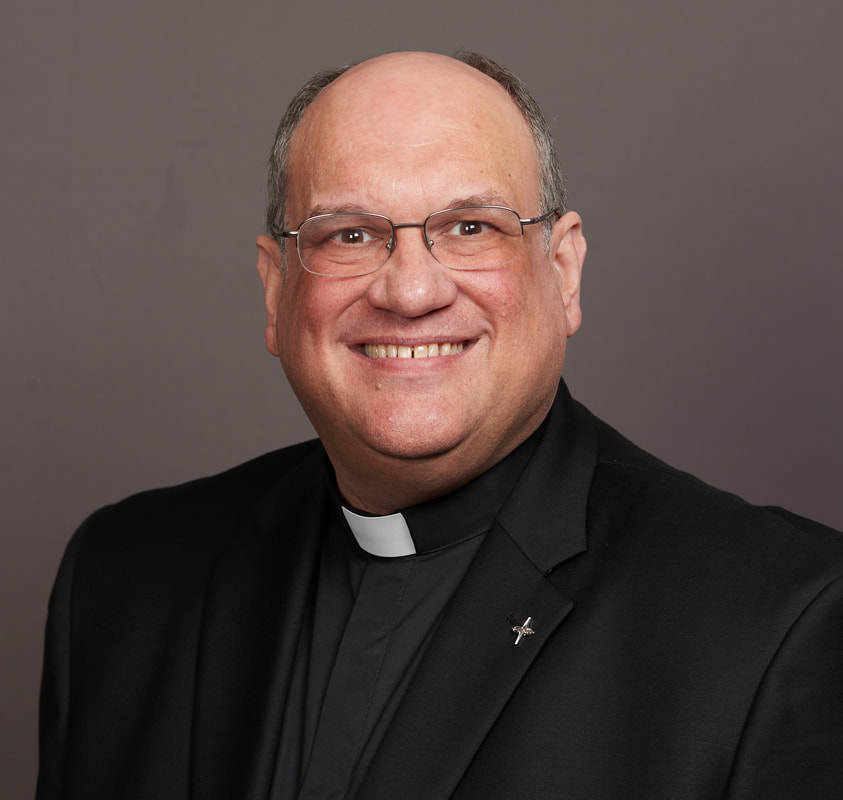


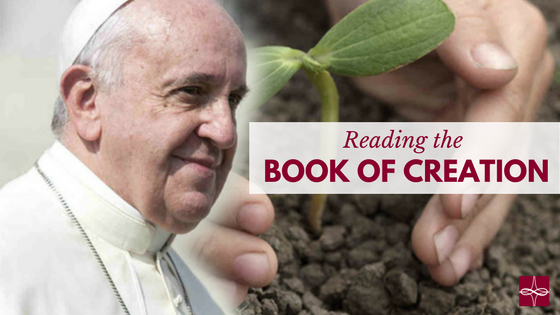
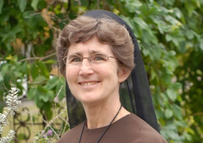
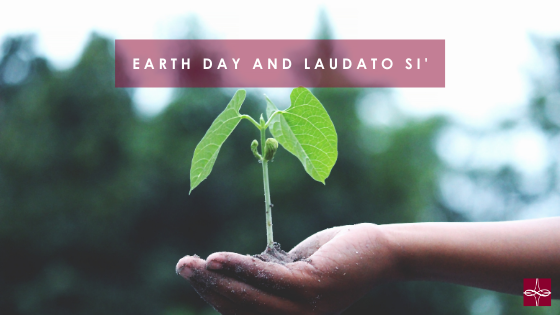
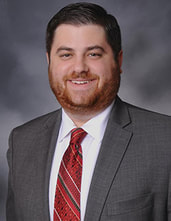
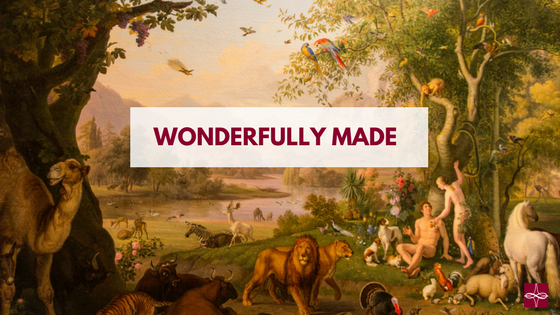

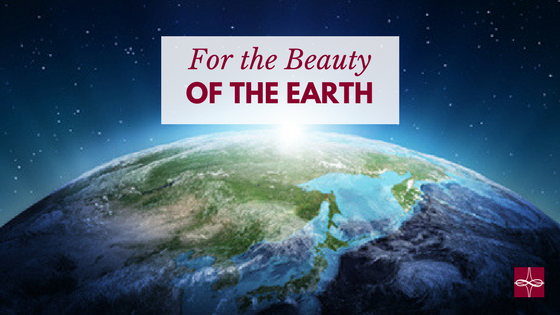

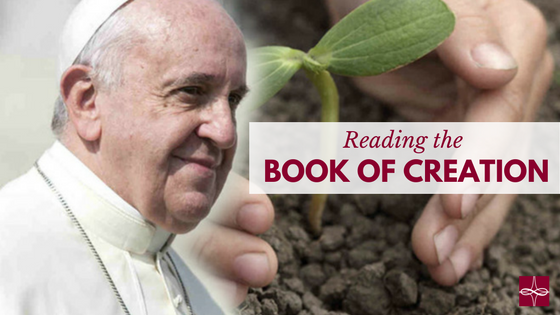
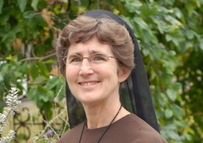
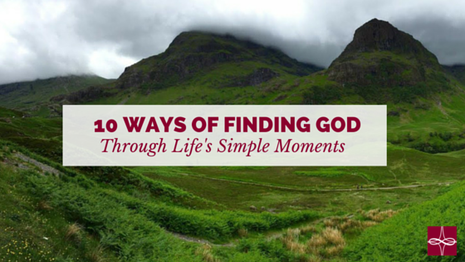

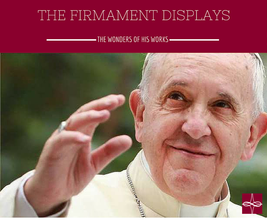
 RSS Feed
RSS Feed